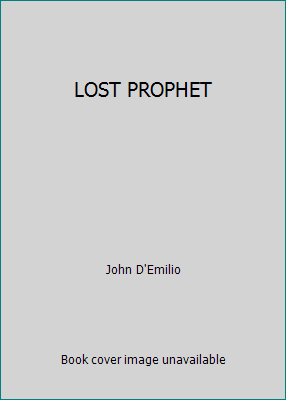


RUSTIN WAS born in 1912 in West Chester, Pennsylvania, a Quaker town that had been an important stop for slaves fleeing to freedom on the Underground Railroad before the Civil War. Like the film, the book is problematic but it affords an opportunity to revisit an inexhaustibly fascinating career.

And now we have Lost Prophet, by John D’Emilio, a professor of “gender studies” at the University of Illinois at Chicago. In January, a major documentary film, Brother Outsider, was shown nationally on public television in observance of Martin Luther King Day it has since made the circuit of gay and lesbian film festivals in the United States, Europe, and Canada. These experiences have also, however, made Rustin something of a hero to today’s gay-rights movement. His two-month imprisonment in 1953 on charges of lewd vagrancy nearly mined his career it was repeatedly held against him by his political foes, most notably in 1963 when Senator Strom Thurmond tried to exploit it to discredit the March on Washington. Indeed, his homosexuality threatened to compromise his political activities and influence, especially after he became a national figure during the heyday of the civil-rights movement. Since Rustin’s death in 1987, he has attracted increasing attention for yet another dimension of his life–the fact that he was an open homosexual. And while he spent decades at the cutting edge of the racial-protest movement, often as its most radical tactician, he ended as the most unyielding adversary within the civil-rights movement of black militancy and separatism.

As a leftist, though he spent a brief period in the Communist youth movement, he evolved into a devoted opponent of Communism, becoming the leader of the most anti-Communist tendency within the American Left. He was an ardent pacifist who eventually turned against the pacifist movement, alienated by its moral absolutism, its fecklessness, and its isolation from the main currents of democratic activism. What makes Rustin’s career especially interesting, if also difficult to capture within conventional political categories, was not just his ability to connect these streams but the shifts and turns he took within them. To each he made a luminous, indispensable contribution. More than any other figure, he occupied a central place in each of the three major streams of American social protest: pacifism, the ideological Left, and the movement for racial equality. But Rustin’s role in that event hardly exhausts his importance. Martin Luther King’s “I have a dream” speech and that spurred passage of the most important civil-rights legislation in the nation’s history. PERHAPS THE archetypal democratic activist of the last century, Bayard Rustin is best known as the organizer of the 1963 March on Washington, the famous demonstration that was highlighted by Dr.


 0 kommentar(er)
0 kommentar(er)
